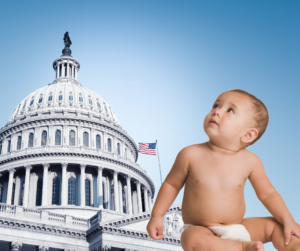
Senate Defunds Planned Parenthood for One Year

Today, The Senate passed its version of the “One Big Beautiful Bill” that defunds Planned Parenthood of its Medicaid funding – over $500M – for one year. The vote was 50-50, as Republican Senators Thom Tillis (N.C.), Rand Paul (Ky.), and Susan Collins (Maine) joined all Democrats in voting against the OBBB. That was the maximum number of Republican votes they could afford to lose in the narrowly divided Senate. Cincinnati’s own, Vice President J.D. Vance broke the tie for a 51-50 victory.
Although Thom Tillis and Rand Paul are pro-life, they opposed the bill due to broader fiscal concerns—despite the fact that it would have defunded Planned Parenthood for the first time in history.
While our hearts are deflated that the nation’s biggest preborn baby killing business is not being defunded for ten years, as originally written in the One Big Beautiful Bill, we must count this day as historic.
America is very close to accomplishing something that has never been done before.
DEFUNDING PLANNED PARENTHOOD
Let’s remember that in May 2025, Planned Parenthood Federation of America released its Fiscal Year 2023 Annual Report (covering July 1, 2023, to June 30, 2024). The report revealed that the nation’s largest abortion provider committed 402,230 abortions during that period—an average of 1,102 unborn babies lost every day. That daily average marks an increase from 1,076 per day reported in Fiscal Year 2022.
American tax dollars have been keeping the killing facilities of Planned Parenthood open. Enough is enough.
When assessing the impact of legislation or court rulings on abortion, observing the reactions of pro-abortion writers often provides valuable insight into the significance of the decision or passing.
Elaine Godfrey, a staff writer for the very left-leaning The Atlantic news publication shared today in an email, “The bill’s passage is part of an abortion one-two punch: Last week, the Supreme Court made it easier for states to deny Medicaid funding to Planned Parenthood.”
The article also shares through Mary Ziegler, a legal scholar and an Atlantic contributor, “It’s ‘a really big deal,’ with perhaps the most significant consequences for abortion access since the passage of the 1976 Hyde Amendment, which bans federal funds for abortions in most cases.”
The bill now heads back to the House, where lawmakers must reconcile the differences between the House and Senate versions. Only then can it move to the President’s desk for final approval. There is a self-imposed July 4 deadline, so many are hopeful this process will be completed in the coming days.
